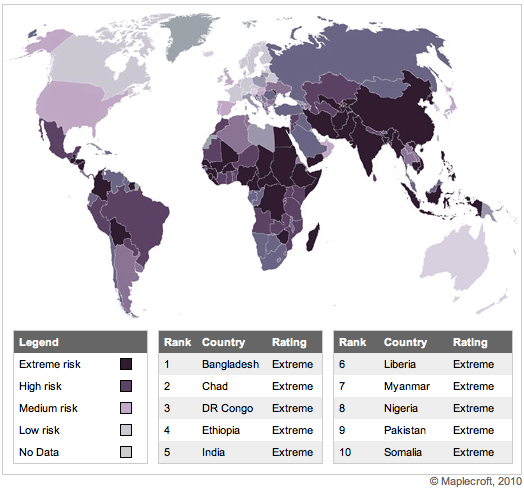The world has seen its share of bad business ethics ever since citizens began offering goods or services for a stipend. The effects of such wrongdoings have been magnified, however, as businesses have prospered and the greed of some has grown. Greed which can sometimes drive people to forget their morals. Some may think of Lehman Brothers as the the worst case of corporate malfeasance to ever rock the business world, while others may claim it was Enron.
One website has published what it claims are the “10 Great Moments in Corporate Malfeasance.” I’m not so sure the word “great” aptly describes these 10 moments. I would guess “worst” or “reputation-ruining” would be more appropriate. Nevertheless, after introducing the piece with the Enron scandal, the site says “what follows are 10 more examples of what a person might do if given the chance to make more money.”
It lists pharmaceutical maker Roche (#10) as refusing to sell its HIV drug Fuzeon at $18,000 (what it was valued at by South Korean health officials) as opposed to $25,000. Even though the drug maker would still make a hefty profit, it refused to sell at the discounted price with the head of Roche’s Korean division claiming, “We are not in the business to save lives, but to make money. Saving lives is not our business.” That’s one people won’t soon forget.
WellPoint (#7) didn’t fair so well in the spotlight after the U.S. health care debate raged this year. It was found that the insurance company was severely abusing recission (the policy of finding ways to cancel insurance contracts). Whose contracts were they canceling?
Women who were diagnosed with breast cancer.
WellPoint was using a computer algorithm that automatically targeted them and every other policyholder recently diagnosed with breast cancer. The software triggered an immediate fraud investigation, as the company searched for some pretext to drop their policies, according to government regulators and investigators. Once the women were singled out, they say, the insurer then canceled their policies based on either erroneous or flimsy information. WellPoint declined to comment on the women’s specific cases without a signed waiver from them, citing privacy laws.
Getting to what most people think of when they think “corporate malfeasance,” the list mentions Goldman Sachs (#5) and its “doomed-to-fail” fund.
Investment banking house Goldman Sachs created Abacus 2007-ACI, a fund of mortgages it sold to investors. What Goldman didn’t tell Abacus fund investors was that the mortgages they were betting would succeed had been handpicked by a favorite Goldman investor to actually lose.
That investor was John Paulson, who eventually made $1 billion from the fund.
IBM (#1) and its tech support garnered the unattractive top spot on the list. The tech giant sold some of its earliest model computers to Nazi Germany, with its founder, Thomas Watson, receiving the highest honor the country could bestow upon non-Germans, the Grand Cross of the German Eagle.
IBM admits that the company’s computers were used to carry out the logistics of the Holocaust, but denies awareness of this use at the time.
Thankfully, there are organizations in place that act as watchdogs for major corporations. CorpWatch is a nonprofit that works to expose corporate malfeasance and “advocate for multinational corporate accountability and transparency.” And probably more well-known is Corporate Accountability International, an organization that has fought against abusive corporations for more than 30 years. They have an impressive track record; from the infant formula campaign of the late 70s and early 80s to the nuclear weaponmaker’s campaign that spanned a decade, they work to bring to light wrongdoings of big businesses. Something Lehman and Enron could have used.
We are a capitalist society, which is only wrong when greed comes before humanity.


 As the report states, there are more than 200 million children working throughout the world, many full-time. Of these, 126 million are exposed to hazardous forms of child labor. As we have seen, many big-name companies have been accused of using child labor, and though they’ve taken many steps to correct their ethical violations, the reputation damage still lingers — and may do so forever.
As the report states, there are more than 200 million children working throughout the world, many full-time. Of these, 126 million are exposed to hazardous forms of child labor. As we have seen, many big-name companies have been accused of using child labor, and though they’ve taken many steps to correct their ethical violations, the reputation damage still lingers — and may do so forever.